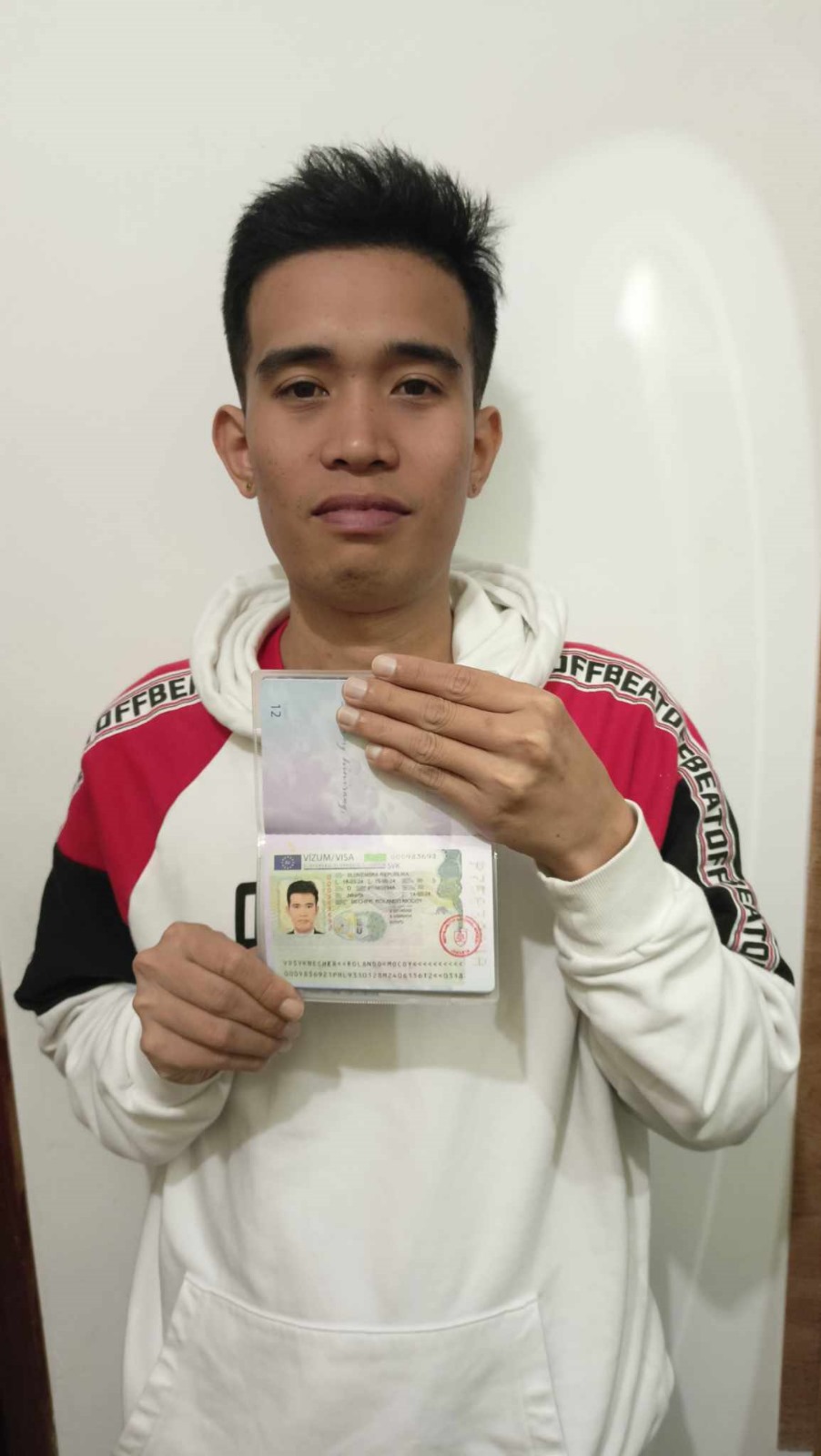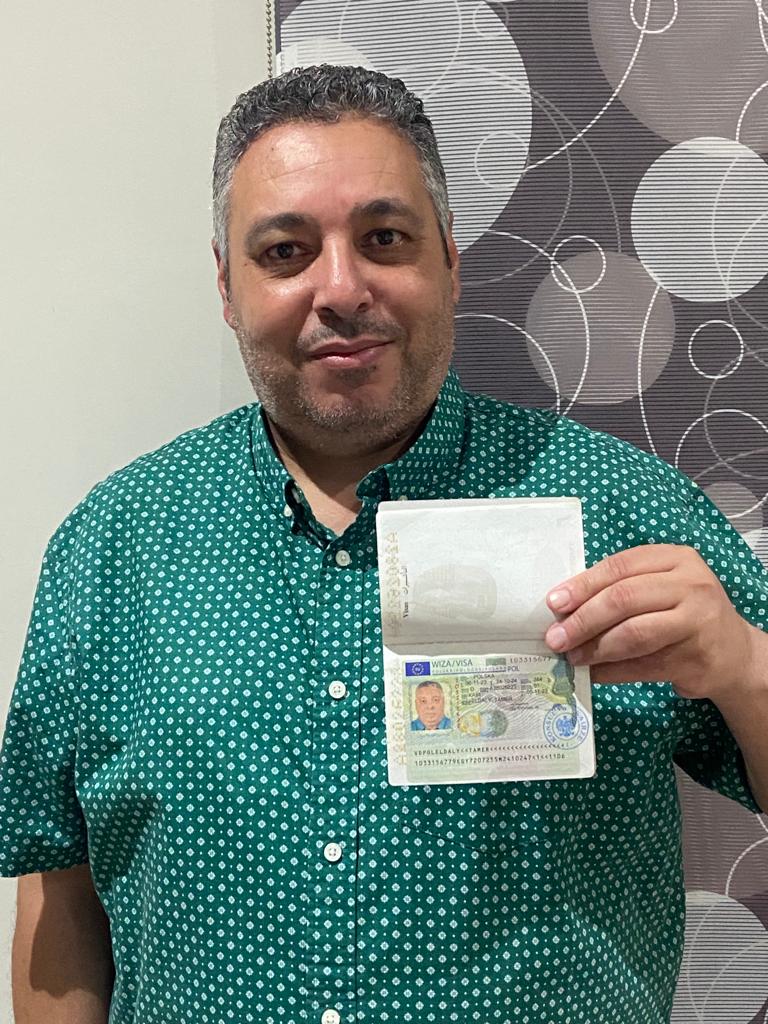

Slovakia Work Visa Guide for Foreigners
Are you dreaming of working in the heart of Europe? With its stunning landscapes, rich history, and growing economy, Slovakia could be your next big adventure. However, getting a Slovakian work visa is one key hurdle before you hop on a plane.
Navigating the work visa process can feel overwhelming for many. The paperwork, legal jargon, and potential language barriers might make it seem daunting. But don’t let that stop you! With the correct information and preparation, securing a work visa for Slovakia can be a smooth and manageable process.
This guide is here to help. We’ll break down everything you need to know—step by step. From understanding Slovakia’s visa requirements to preparing your application, we’ll ensure you’re ready for every stage. Plus, we’ll give you insider tips on the Slovak job market, what it’s like to live and work in Slovakia, and how to handle any challenges that come your way.
Whether you’re a skilled worker, a fresh graduate looking for international experience, or an entrepreneur ready to expand your horizons, this guide is your roadmap to making Slovakia your new home. So, let’s get started and turn your European work dreams into reality!
Understanding Slovakia's Work Visa System
Types of work visas available
Slovakia offers several types of work visas for foreign nationals, depending on the nature and duration of their employment. The main categories include:
- Temporary Residence Permit for Employment
- Blue Card for Highly Qualified Workers
- Intra-Company Transfer (ICT) Permit
- Seasonal Work Permit
Let's explore these options in more detail:
|
Visa Type |
Duration |
Key Features |
|---|---|---|
|
Temporary Residence Permit |
Up to 5 years |
Most common for general employment |
|
Blue Card |
Up to 4 years |
For highly skilled professionals |
|
ICT Permit |
Up to 3 years |
For employees transferred within a company |
|
Seasonal Work Permit |
Up to 6 months |
For short-term, seasonal employment |
Eligibility criteria for foreign workers
To be eligible for a Slovakia work visa, foreign workers must meet specific criteria:
- Have a valid job offer or employment contract from a Slovak employer
- Possess the necessary qualifications and skills for the job
- Meet health requirements and provide a clean criminal record
- Have sufficient financial means to support themselves
- Obtain work permit approval from the Slovak Labor Office (in some cases)
Additional requirements may apply depending on the specific visa category. For instance, Blue Card applicants must have a higher education qualification and meet a minimum salary threshold.
Duration and validity of work visas
The duration of Slovakia work visas varies depending on the type:
- Temporary Residence Permit: Initially granted for up to 2 years, renewable for up to 5 years
- Blue Card: Valid for up to 4 years, renewable
- ICT Permit: Maximum of 3 years for managers and specialists, 1 year for trainees
- Seasonal Work Permit: Up to 6 months within 12 months
It's important to note that work visas are typically tied to a specific employer and position. Any changes in employment may require a new visa application or amendment to the existing permit.
Benefits of obtaining a Slovak work visa
Securing a Slovakia work visa offers numerous advantages for foreign workers:
- Legal employment: Work legally in Slovakia and enjoy protection under Slovak labour laws
- Access to social benefits: Eligibility for healthcare, social security, and other welfare programs
- Professional growth: Gain valuable international work experience and expand career opportunities
- Path to permanent residence: Possibility to apply for permanent residence after meeting specific criteria
- EU mobility: Potential for easier travel and work opportunities within the Schengen Area
- Family reunification: Option to bring family members to Slovakia under certain conditions
- Cultural immersion: Experience Slovak culture and lifestyle firsthand
Now that we've covered the fundamentals of Slovakia's work visa system, let's move on to the step-by-step process of applying for a work visa in Slovakia.
Steps to Apply for a Slovakia Work Visa
A. Gather required documents
Before starting your Slovakia work visa application, collecting all necessary documents is essential. This step forms the foundation of a successful application process. Here's a comprehensive checklist of essential documents:
- Valid passport (with at least two blank pages)
- Completed visa application form
- Recent passport-sized photographs
- Proof of accommodation in Slovakia
- Travel insurance covering your stay
- Criminal record certificate from your home country
- Medical certificate proving good health
- Proof of sufficient financial means
Remember, all documents must be translated into Slovak by a certified translator.
B. Secure a job offer from a Slovak employer
Obtaining a job offer is a critical step in the Slovakia work visa process. Your prospective employer has a significant role in your application. They must:
- Provide you with a written job offer or employment contract
- Register the job vacancy with the local Labor Office
- Obtain a work permit on your behalf
|
Employer's Responsibilities |
Your Responsibilities |
|---|---|
|
Register job vacancy |
Accept job offer |
|
Obtain work permit |
Provide necessary info |
|
Assist with the visa process |
Prepare documents |
C. Apply to the Slovak embassy or consulate
Once you have gathered all required documents and secured a job offer, it's time to submit your application. Follow these steps:
- Locate the nearest Slovak embassy or consulate in your country
- Schedule an appointment for visa submission
- Prepare a complete application package
- Submit your application in person at the embassy or consulate
D. Attend visa interview (if required)
Some applicants may be called for an interview. If needed, prepare by:
- Reviewing your application thoroughly
- Researching about Slovakia and your prospective job
- Practicing common interview questions
- Gathering additional supporting documents
E. Pay visa fees
The final step is to pay the required visa fees. As of 2023, the fees are:
- Short-stay visa (up to 90 days): €80
- Long-stay visa (over 90 days): €135
Just to remind you, fees may vary based on your nationality and visa type. Always check the latest fee structure on the official Slovak immigration website.
Now that you're familiar with the application steps, it's essential to understand the Slovak labor market to increase your chances of finding suitable employment opportunities. In the next section, we will explore this aspect.
Key Documents for Slovakia Work Visa Application
A. Valid passport
When applying for a Slovakia work visa, a valid passport is the most crucial document you'll need. Here are the key requirements for your passport:
- Validity: Your passport must be valid for at least three months beyond your intended stay in Slovakia.
- Blank pages: Ensure your passport has at least two blank pages for visa stamps.
- Issue date: The passport should not be older than 10 years.
- Condition: The passport must be in good condition, free from damage or alterations.
|
Passport Requirement |
Details |
|---|---|
|
Validity |
3+ months beyond intended stay |
|
Blank pages |
Minimum 2 |
|
Issue date |
Not older than 10 years |
|
Condition |
Undamaged and unaltered |
B. Completed visa application form
The visa application form is a crucial document that provides essential information about your intended stay in Slovakia. Here's what you need to know:
- Download the latest form version from the official Slovak embassy website.
- Fill out the form completely and accurately in English or Slovak.
- Use block letters or type the information for better readability.
- Sign and date the form where indicated.
- Attach a recent passport-sized photograph that meets the specified requirements.
C. Proof of accommodation in Slovakia
To obtain a Slovakia work visa, you must provide evidence of your living arrangements during your stay. Acceptable forms of proof include:
- Rental agreement
- Hotel reservation
- Letter of invitation from a host (if staying with friends or family)
Please make sure that the proof of accommodation covers the entire duration of your intended stay in Slovakia.
D. Employment contract or job offer letter
A valid employment contract or job offer letter is essential for your Slovakia work visa application. This document should include:
- Your full name and passport details
- Job title and description
- Start date and duration of employment
- Salary and benefits information
- Employer's contact information and registration details
|
Key Information in Employment Document |
|---|
|
Full name and passport details |
|
Job title and description |
|
Start date and duration |
|
Salary and benefits |
|
Employer's details |
It's crucial to ensure that all documents are original or certified copies, and an official translation must accompany any documents not in Slovak or English. Additionally, you may need to provide supporting documents such as:
- Proof of qualifications (degrees, certificates)
- CV or resume
- Police clearance certificate from your home country
- Medical certificate (if required for your specific profession)
By thoroughly preparing these key documents, you'll significantly improve your chances of a successful Slovakian work visa application. Remember to check with your country's Slovak embassy or consulate for any additional requirements specific to your situation or nationality.
Understanding the Slovak Labor Market
In-demand jobs and sectors
The Slovak labour market offers numerous opportunities for foreign workers across various sectors. Some of the most in-demand jobs and sectors include:
- Information Technology (IT)
- Automotive Industry
- Engineering
- Healthcare
- Manufacturing
- Shared Service Centers
Let's take a closer look at these sectors and their job prospects:
|
Sector |
In-demand Jobs |
Growth Potential |
|---|---|---|
|
IT |
Software Developers, Data Analysts, Cybersecurity Specialists |
High |
|
Automotive |
Mechanical Engineers, Quality Control Specialists, Production Managers |
Moderate to High |
|
Engineering |
Electrical Engineers, Civil Engineers, Project Managers |
Moderate |
|
Healthcare |
Doctors, Nurses, Medical Technicians |
High |
|
Manufacturing |
CNC Operators, Production Line Workers, Supply Chain Managers |
Moderate |
|
Shared Service Centers |
Customer Service Representatives, Financial Analysts, HR Specialists |
High |
Average salaries and work conditions
Work conditions in Slovakia are generally favourable, with a standard 40-hour workweek and a minimum of 20 days of paid vacation per year. The average salaries vary depending on the sector, experience, and location. Here's a brief overview:
- Entry-level positions: €800 - €1,200 per month
- Mid-level positions: €1,200 - €2,000 per month
- Senior-level positions: €2,000 - €3,500+ per month
It's important to note that salaries in Bratislava, the capital city, tend to be higher than in other regions of Slovakia. The cost of living is also generally lower than in many Western European countries, making Slovakia an attractive destination for foreign workers.
Language requirements for foreign workers
While Slovak is the official language of Slovakia, the language requirements for foreign workers can vary depending on the job and sector. Here's what you need to know:
- IT and Multinational Companies: Often require only English, with Slovak being a bonus
- Customer-facing roles: Usually require at least basic Slovak language skills
- Healthcare and Education: Typically require a good command of Slovak
- Manufacturing and Production: Basic Slovak or English may be sufficient, depending on the company
To improve your job prospects and integrate better into Slovak society, consider the following language tips:
- Learn basic Slovak phrases before arrival
- Enroll in language courses upon arrival in Slovakia
- Practice with locals and colleagues to improve your skills
- Consider obtaining a Slovak language certificate for certain professions
Understanding the Slovak labor market is crucial for foreign workers seeking employment opportunities. With a growing economy and various in-demand sectors, Slovakia offers promising prospects for skilled professionals. Now that you're familiar with the job market let's explore what it's like to live and work in Slovakia, including accommodation options, healthcare, and social integration.
Living and Working in Slovakia
Cost of living in major Slovak cities
Living in Slovakia can be quite affordable compared to many Western European countries. Here's a breakdown of the cost of living in some major Slovak cities:
|
City |
Average Monthly Rent (1-bedroom apartment) |
Average Monthly Utilities |
Monthly Public Transport Pass |
|---|---|---|---|
|
Bratislava |
€500 - €700 |
€150 - €200 |
€26 |
|
Košice |
€350 - €500 |
€120 - €170 |
€20 |
|
Žilina |
€300 - €450 |
€100 - €150 |
€18 |
|
Nitra |
€280 - €400 |
€100 - €150 |
€17 |
While Bratislava, the capital, tends to be more expensive, other cities offer a lower cost of living. Groceries, dining out, and entertainment are generally affordable across Slovakia.
Healthcare and social security for foreign workers
Slovakia provides a comprehensive healthcare system and social security benefits for foreign workers. Here are key points to consider:
- Public health insurance is mandatory for all employees, including foreigners
- Employers contribute to health insurance and social security on behalf of their employees
- Foreign workers are entitled to the same healthcare benefits as Slovak citizens
- The social security system covers:
- Pension insurance
- Disability insurance
- Unemployment insurance
- Accident insurance
To access these benefits, ensure you obtain your Slovak social security number (rodné číslo) upon arrival.
Banking and taxes for expats
Setting up your financial affairs in Slovakia is crucial for a smooth transition. Here's what you need to know about banking and taxes:
- Banking:
- Major banks in Slovakia include Tatra Banka, VÚB, and Slovenská sporiteľňa
- Opening a bank account typically requires:
- Valid passport
- Proof of address in Slovakia
- Employment contract or work permit
- Taxes:
- Slovakia has a progressive tax system
- Income tax rates range from 19% to 25%
- Foreign workers are considered tax residents if they stay in Slovakia for more than 183 days in a calendar year
- Tax residents are taxed on their worldwide income
- Non-residents are taxed only on income earned in Slovakia
To avoid complications, remember to familiarise yourself with local tax regulations and deadlines. Many expats find it helpful to consult with a local tax advisor to ensure compliance with Slovak tax laws.
As you settle into life in Slovakia, you'll find that the country offers a good balance of affordability, quality healthcare, and modern banking services. While the cost of living in Bratislava may be higher than in other cities, it's still relatively affordable compared to many Western European capitals. With a solid understanding of the healthcare system, social security benefits, and financial landscape, you'll be well-equipped to make the most of your work experience in Slovakia.
Extending Your Stay in Slovakia
Renewing your work visa
Once you've established yourself in Slovakia and wish to continue your professional journey, renewing your work visa is crucial. The renewal process typically begins 90 days before your current visa expires. To ensure a smooth renewal:
- Gather updated documentation:
- Valid passport
- Current work permit
- Proof of continued employment
- Updated criminal record check
- Proof of accommodation
- Submit your application to the Foreign Police office in your region.
- Pay the renewal fee (currently €165.50 for temporary residence renewal).
- Attend an in-person interview if you need to.
Remember, it's essential to maintain continuous legal status. You can start the renewal process early if you don't see gaps in your work authorisation.
Transitioning to permanent residency
You may be eligible for permanent residency after residing in Slovakia for a certain period. This status offers more stability and rights compared to temporary residence. Here's what you need to know:
- Eligibility criteria:
- 5 years of continuous temporary residence
- Clean criminal record
- Proof of integration (language proficiency, cultural knowledge)
- Application process:
- Submit documents to the Foreign Police
- Undergo an interview
- Pay the application fee (currently €165.50)
- Benefits of permanent residency:
- No need for work permits
- Access to public healthcare and education
- Ability to purchase property
|
Temporary Residence |
Permanent Residence |
|---|---|
|
Limited duration |
Indefinite stay |
|
Requires work permit |
No work permit needed |
|
Restricted benefits |
Full access to social benefits |
|
Regular renewals |
One-time application |
Path to Slovak citizenship
Acquiring citizenship is the ultimate goal for those looking to make Slovakia their permanent home. The path to Slovak citizenship involves:
- Residency requirement:
- 8 years of permanent residence, or
- 10 years of lawful continuous residence
- Additional requirements:
- Proficiency in Slovak language
- Knowledge of Slovak history and culture
- Clean criminal record
- Proof of financial stability
- Application process:
- Apply to the Ministry of Interior
- Attend an interview and pass a citizenship test
- Pay the application fee (currently €700)
- Benefits of citizenship:
- Right to vote and hold public office
- Unrestricted travel within the EU
- Ability to pass citizenship to children
Now that you understand the options for extending your stay in Slovakia, from renewing your work visa to potentially becoming a citizen, you can make informed decisions about your future in this beautiful Central European country. As you consider these options, you must also be aware of the potential challenges you might face and how to overcome them, which we'll explore in the next section.
Common Challenges and How to Overcome Them
Language barriers
One of the most significant challenges for foreigners working in Slovakia is overcoming language barriers. While English is widely spoken in larger cities and multinational companies, Slovak remains the primary language in daily life and many workplaces.
To overcome this challenge:
- Learn basic Slovak: Start with essential phrases and greetings.
- Enroll in language courses: Many language schools offer Slovak lessons for foreigners.
- Use language learning apps: Duolingo or Babbel can help you practice on the go.
- Immerse yourself: Watch Slovak TV shows, listen to podcasts, and read local newspapers.
Cultural adaptation
Adapting to Slovak culture can be both exciting and challenging. Understanding local customs and social norms is crucial for a smooth transition.
Tips for cultural adaptation:
- Observe and learn from locals
- Participate in cultural events and festivals
- Join expat groups for support and advice
- Be open-minded and respectful of local traditions
|
Aspect |
Slovak Custom |
How to Adapt |
|---|---|---|
|
Greetings |
Handshakes are common |
Offer a firm handshake when meeting someone |
|
Punctuality |
Being on time is important |
Arrive a few minutes early for appointments |
|
Gift-giving |
Bringing small gifts when invited to homes |
Bring flowers or chocolates when visiting friends |
|
Dining etiquette |
Wait for the host to start eating |
Follow the lead of your host during meals |
Navigating bureaucracy
Dealing with administrative procedures in Slovakia can be complex and time-consuming for foreigners. The bureaucratic process often involves multiple steps and various government offices.
To navigate bureaucracy effectively:
- Research thoroughly: Understand the requirements for each procedure.
- Seek professional help: Consider hiring a relocation specialist or lawyer.
- Be patient and persistent: Prepare for delays and follow up regularly.
- Keep organised records: Maintain copies of all documents and correspondence.
Finding suitable accommodation
Securing appropriate housing can be challenging, especially in popular cities like Bratislava. The rental market can be competitive, and landlords may hesitate to rent to foreigners.
Strategies for finding accommodation:
- Start your search early, ideally before arriving in Slovakia
- Use online property portals and real estate agencies
- Consider short-term rentals initially to give yourself time to explore options
- Network with colleagues and expat communities for leads and recommendations
When searching for accommodation, consider factors such as:
- Proximity to work or public transportation
- Cost of utilities and additional fees
- Length of lease and notice period
- Furnished vs. unfurnished options
Being prepared and proactive can overcome these challenges and smooth your transition to working and living in Slovakia. Remember that adaptation takes time, and obstacles are expected along the way. Stay positive, seek support when needed, and embrace the opportunity to learn and grow in your new environment.
Navigating Slovakia's work visa system may seem complex, but it can be a smooth process with the correct information and preparation. From understanding the application steps to gathering essential documents, this guide equips you with the knowledge needed to pursue your career in Slovakia. Remember to familiarise yourself with the Slovak labour market and be prepared for the unique aspects of living and working in this Central European country.
Please stay tuned and informed as you begin your journey to work in Slovakia. Track visa extension requirements, and please don't hesitate to seek help when facing challenges. With its rich culture, growing economy, and welcoming atmosphere, Slovakia offers exciting opportunities for foreign professionals. Start your work visa application today to take the first step towards your Slovak adventure!
1. Who needs a work visa to work in Slovakia?
Foreigners from non-EU/EEA countries require a work visa and a work permit to work in Slovakia legally.
2. What types of work visas are available in Slovakia?
Slovakia offers various visas, including:
- Short-term work visas
- Long-term work visas
- Intra-company transfer visas
3. How do I apply for a work visa in Slovakia?
The process includes:
- Securing a job offer from a Slovak employer.
- Obtaining a work permit (if required).
- Applying for a residence and work visa at your country's Slovak embassy or consulate.
4. What documents are required for a Slovakia work visa?
Key documents include:
- Passport
- Job contract or offer letter
- Work permit (if applicable)
- Proof of accommodation in Slovakia
- Health insurance
- Visa application form
5. How long does it take to get a work visa for Slovakia?
Processing times vary but typically range from 30 to 90 days after submitting your application.
6. Do I need a work permit if I have a residence permit?
Yes, a work permit is generally required unless you are exempt under specific conditions, such as being an EU Blue Card holder.
7. Can I bring my family on a Slovakia work visa?
Family reunification is allowed, but you must prove financial stability to support them.
8. Are there language requirements for a Slovakia work visa?
While the visa does not have language requirements, knowing Slovak or English is often necessary for employment.
9. How much does a Slovakia work visa cost?
Visa fees typically range between €35 and €99, depending on the type of visa and your nationality.
10. Can I switch jobs on a Slovakia work visa?
If your new job has different conditions or is with a new employer, you must inform the immigration authorities and apply for a new work permit.
11. Are there any exemptions from the work permit requirement?
Certain professionals, such as researchers or highly skilled workers, may be exempt from requiring a separate work permit.
12. What is the duration of a Slovakia work visa?
The visa is usually valid for the duration of your employment contract, up to a maximum of two years, with the option to renew.
13. What jobs are in high demand in Slovakia?
Skilled IT, engineering, healthcare, construction, and manufacturing workers are in high demand in Slovakia.
14. Can I work part-time or freelance in Slovakia?
Part-time work is allowed if your visa and employment contract permits it. Freelance work requires a trade license or a different permit.
15. What should I do if my work visa application is rejected?
If rejected, you can appeal the decision, rectify any missing or incorrect information, and reapply. Consulting an immigration expert may be helpful.

















